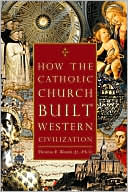Solomon (notes from Christian Answers)
He had seven hundred wives and three hundred concubines, an evidence at once of his pride, his wealth, and his sensuality.
But that golden age of Jewish history passed away. The bright day of Solomon's glory ended in clouds and darkness. His decline and fall from his high estate is a sad record.
Chief among the causes of his decline were his polygamy and his great wealth.
"As he grew older he spent more of his time among his favorites. The idle king living among these idle women, for 1,000 women, with all their idle and mischievous attendants, filled the palaces and pleasure-houses which he had built (1 Kings 11:3), learned first to tolerate and then to imitate their heathenish ways.
He did not, indeed, cease to believe in the God of Israel with his mind. He did not cease to offer the usual sacrifices in the temple at the great feasts. But his heart was not right with God; his worship became merely formal; his soul, left empty by the dying out of true religious fervour, sought to be filled with any religious excitement which offered itself. Now for the first time a worship was publicly set up amongst the people of the Lord which was not simply irregular or forbidden, like that of Gideon (Judg. 8:27), or the Danites (Judg. 18:30,31), but was downright idolatrous." (1 Kings 11:7; 2 Kings 23:13.)
This brought upon him the divine displeasure. His enemies prevailed against him (1 Kings 11:14-22, 23-25, 26-40), and one judgment after another fell upon the land. And now the end of all came, and he died, after a reign of forty years, and was buried in the city of David, and "with him was buried the short-lived glory and unity of Israel." "He leaves behind him but one weak and worthless son, to dismember his kingdom and disgrace his name."
(From catholic.org)
The fact that Solomon's reign was passed in tranquillity, except for the attempts of Edom and Damascus to regain their independence, testifies to the care he displayed for the defence of the realm. That he showed no ambition to undertake foreign conquests redounds to his credit; after the exhausting wars of David the nation needed repose. And if he spent his people's wealth lavishly, his commercial policy may have helped to produce that wealth, and perhaps even given to the Jewish people that impulse towards trade which has been for centuries so marked a trait in their character. Nor can the indirect effects of the commerce he fostered be overlooked, inasmuch as it brought the people into closer contact with the outside world and so enlarged their intellectual horizon. And in two other respects he profoundly influenced his nation's after-history, and thereby mankind in general. In the first place, whatever the burdens which the construction of the temple entailed upon the generation that saw it erected, it eventually became the chief glory of the Jewish race. To it, its ritual, and its associations, was largely due the stronger hold which, after the disruption, the religion of Jehovah had upon Judah as contrasted with Northern Israel; and when Judah ceased to be a nation, the reconstructed temple became in a still higher degree the guardian of the Hebrew faith and hope. And secondly, the Book of Proverbs, though parts are expressly ascribed to other authors than Solomon, and even those sections which are attributed to him may be complex of origin, is nevertheless the product of Solomon's spirit and example, and much that it contains may actually have proceeded from him. And as Proverbs served as a model for many works of a similar character in later times, some of which, as has been said, were popularly ascribed to him (Ecclesiastes, Wisdom), the debt which the world of literature indirectly owes to the Hebrew king is considerable. The works named do not exhaust the list of productions with which Solomon's name is connected. The Song of Songs is attributed to him; two of the Canonical psalms are entitled his; and a book of Psalms of quite late date also goes by his name.
Abijah
Biblical Data: (From Jewish encyclopedia)
The second king of Judah, son of Rehoboam. His reign lasted three years (B.C. 918-915). From the account in I Kings, xv. 1-8 (where he is called Abijam), it would appear that he was a wicked ruler, "who walked in all the sins of his father," and that it was only for the sake of David, his ancestor, that the royal line was continued in him. "God gave him a lamp in Jerusalem to set up his son after him, and to establish Jerusalem: because David did that which was right in the sight of the Lord and turned not aside from anything that he commanded him all the days of his life, save only in the matter of Uriah the Hittite." The only other matter there touched upon is his relations with the northern kingdom, as to which it is merely said that there was constant war between him and Jeroboam I. In II Chron. xiii. much is said of Abijah, and all of it with direct or implied approbation. Indeed, no two accounts of the same person could be more contradictory. In I Kings, xv. 2, his mother is said to have been Maachah, daughter of Abishalom; this is confirmed by II Chron. xi. 20 in its account of the reign of Rehoboam. But in II Chron. xiii. 2 she is called "Michaiah, the daughter of Uriel of Gibeah" (see Targ. Chron. for the rabbinical view). The chronicler records an address by Abijah to Jeroboam before a battle with that monarch, congratulating the people of Judah upon their devotion to YHWH, and dealing minutely with the matters of worship and ritual in which they were superior to the people of the Ten Tribes, against whom the judgment of YHWH is invoked (II Chron. xiii. 4-12). The chronicler also gives a detailed account of this battle, in which Judah was victorious. We are warned by the case of Uzziah (Azariah) not to hastily infer from the silence of the Book of Kings with regard to events narrated in Chronicles that such events are unhistorical. There was doubtless a continuation under Abijah of the state of feud that had prevailed from the beginning of the schism; and the tradition of a signal victory gained by Abijah over Jeroboam must have had a well-grounded basis. But the details given in Chronicles are impossible. The number of men engaged in battle is greater than the whole adult male population of the kingdoms at any epoch, and much greater than that of any armies that ever faced one another during the world's history. As a result of his defeat, Jeroboam is said to have lost Bethel and two other districts with their towns. This was at best but a temporary gain for Judah. The chronicler adds that Abijah waxed mighty and married fourteen wives, and begat twenty and two sons and sixteen daughters (II Chron. xiii. 21). The context implies that this occurred after Abijah's accession and during his reign of three years. The account is closed with the statement that these and other facts are to be found in the Midrash of the prophet Iddo.J. F. McC.—In Rabbinical Literature:
Although Abijah took up God's cause against Jeroboam, the idolatrous king of Israel, he was not permitted to enjoy the fruits of his victory over the latter for any considerable time, dying as he did shortly after his campaign (Josephus, "Ant." viii. 11, § 3). The rabbis recount many transgressions committed by Abijah against his fellow men, which resulted in drawing God's vengeance upon him more speedily than upon Jeroboam's idolatries. Thus it is stated that he mutilated the corpses of Jeroboam's soldiers, and even would not permit them to be interred until they had arrived at a state of putrefaction. Nor did Abijah show himself zealous in God's cause after all; for when, by the conquest of Bethel (II Chron. xiii. 19), the golden calves came into his possession, he did not destroy them as the law (Deut. vii. 25) enjoined. The rabbis also point out that it was improper for Abijah to accuse the whole of Israel of idolatry and to proclaim the appointment of Jeroboam as king to have been the work of "vain men, the children of Belial" (II Chron. xiii. 7), since in point of fact it was the prophet Ahijah, the Shilonite, who made him king (I Kings, xi. 37). For these reasons Abijah's reign was a short one.


No comments:
Post a Comment